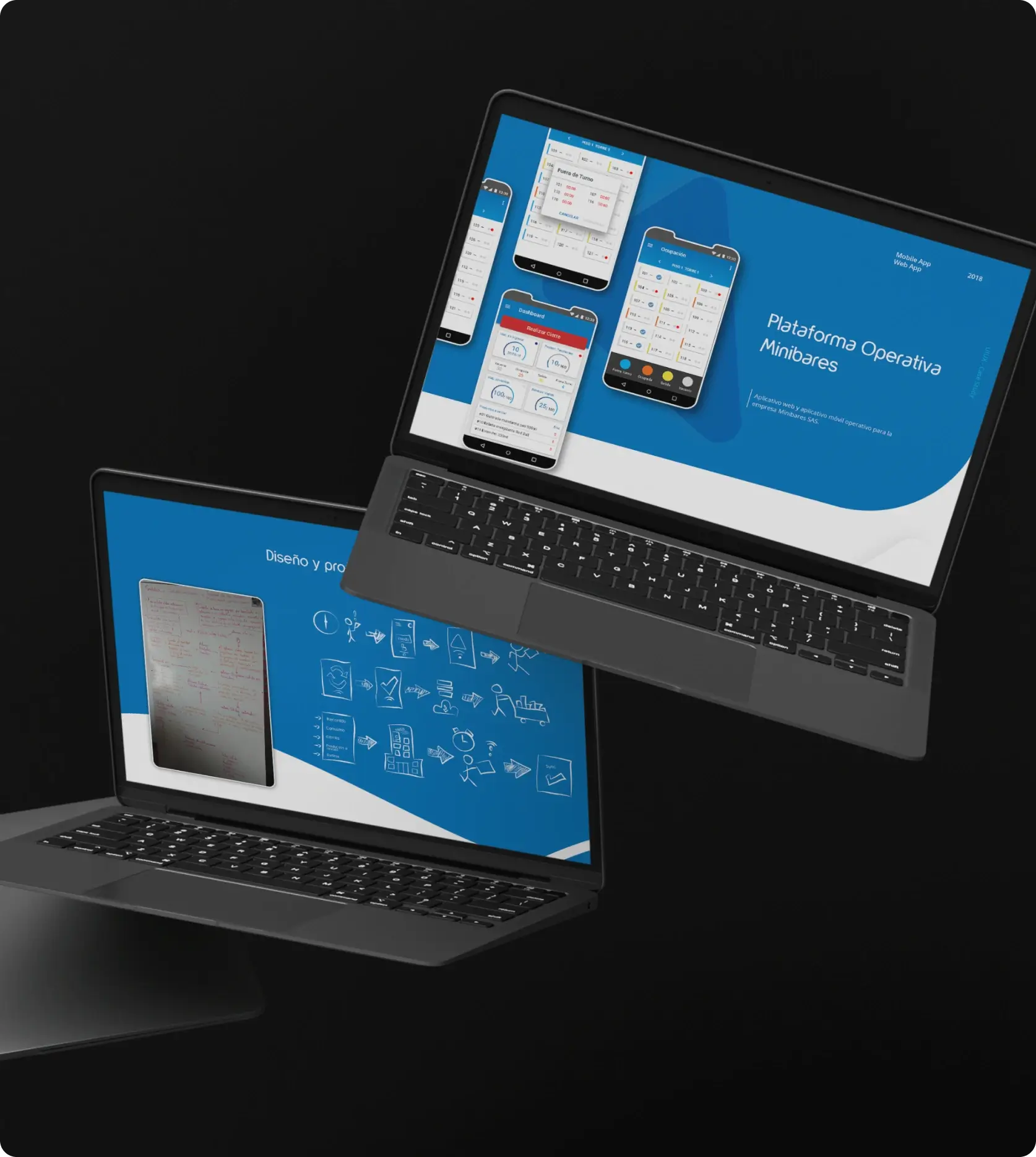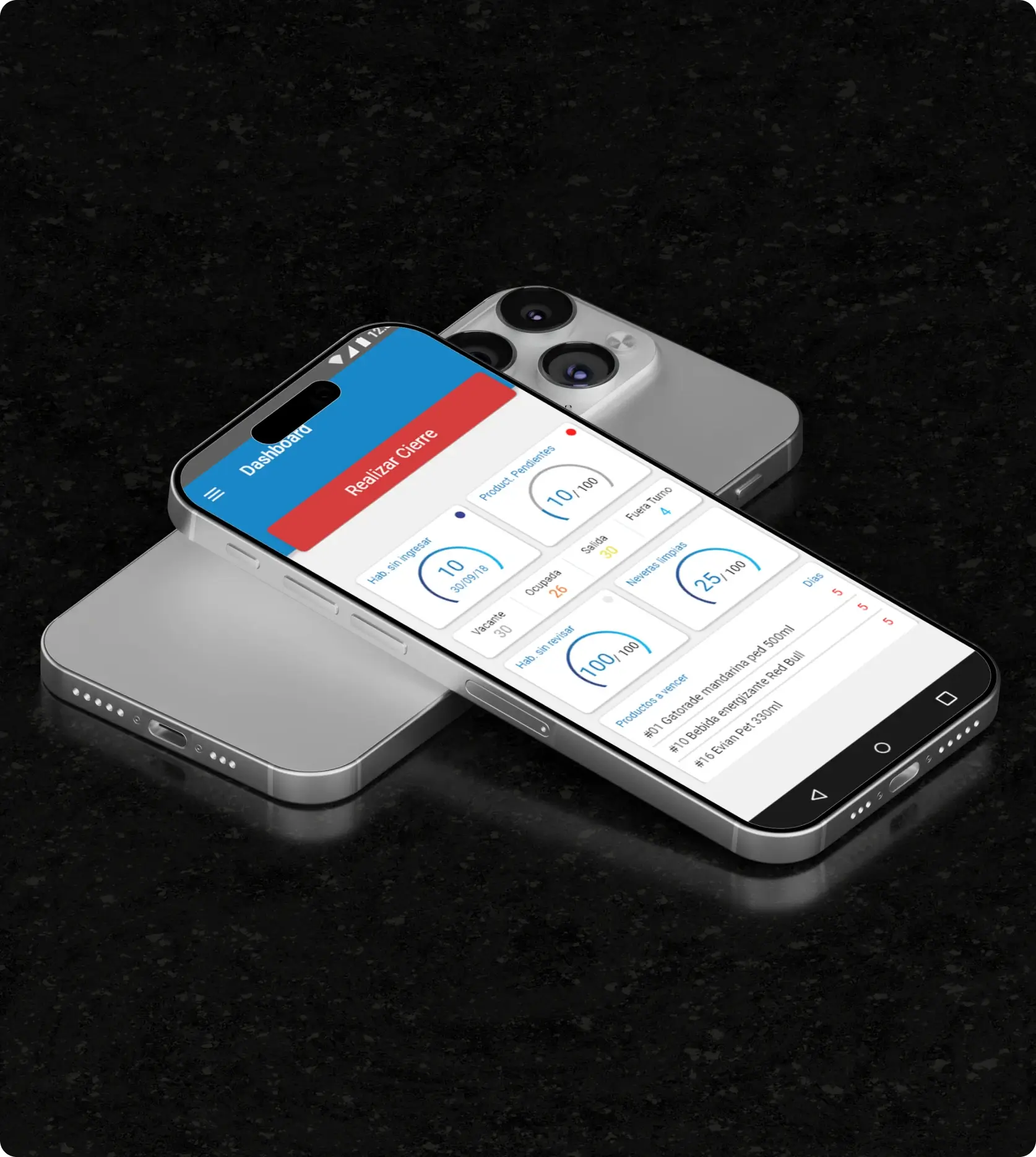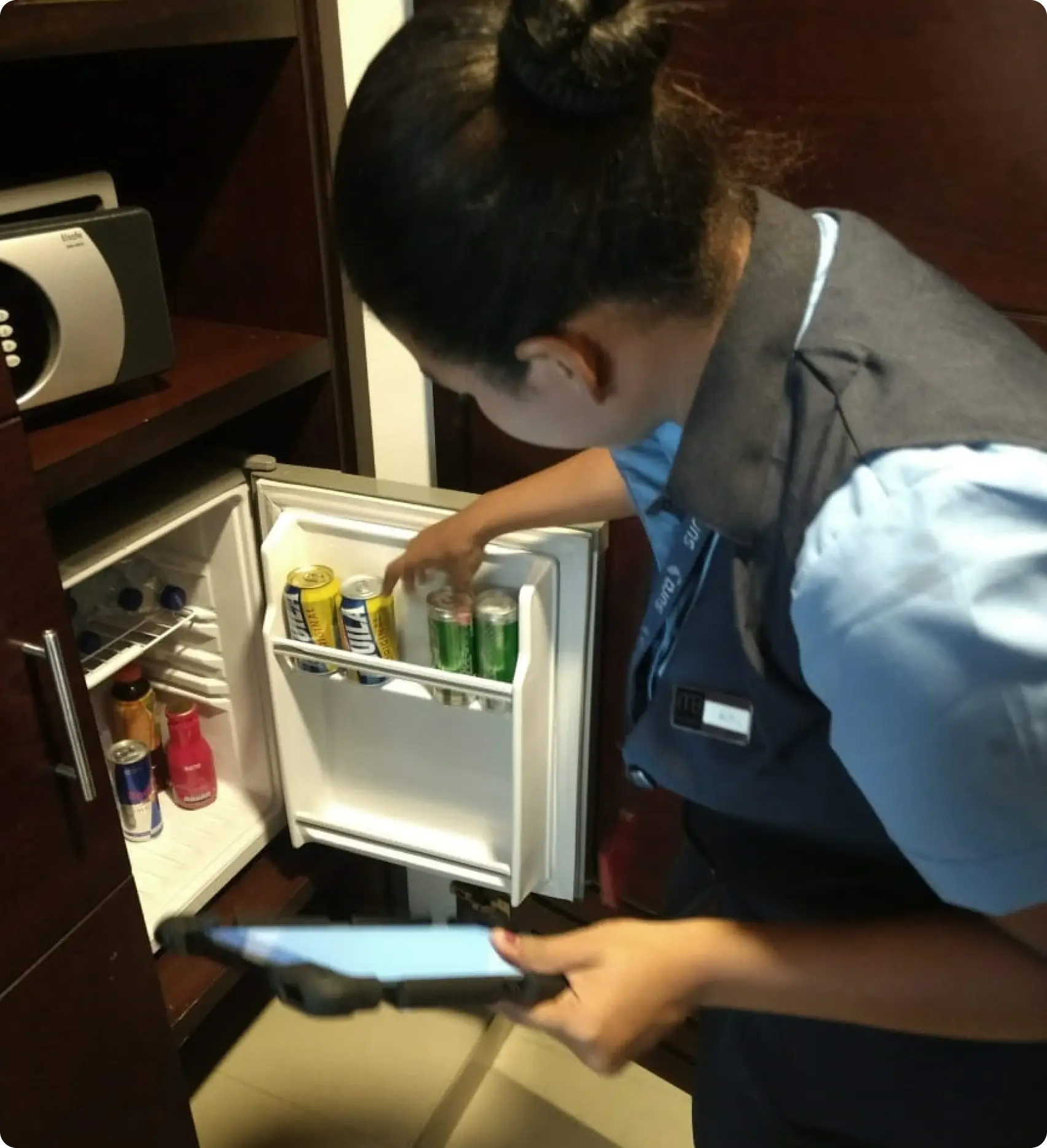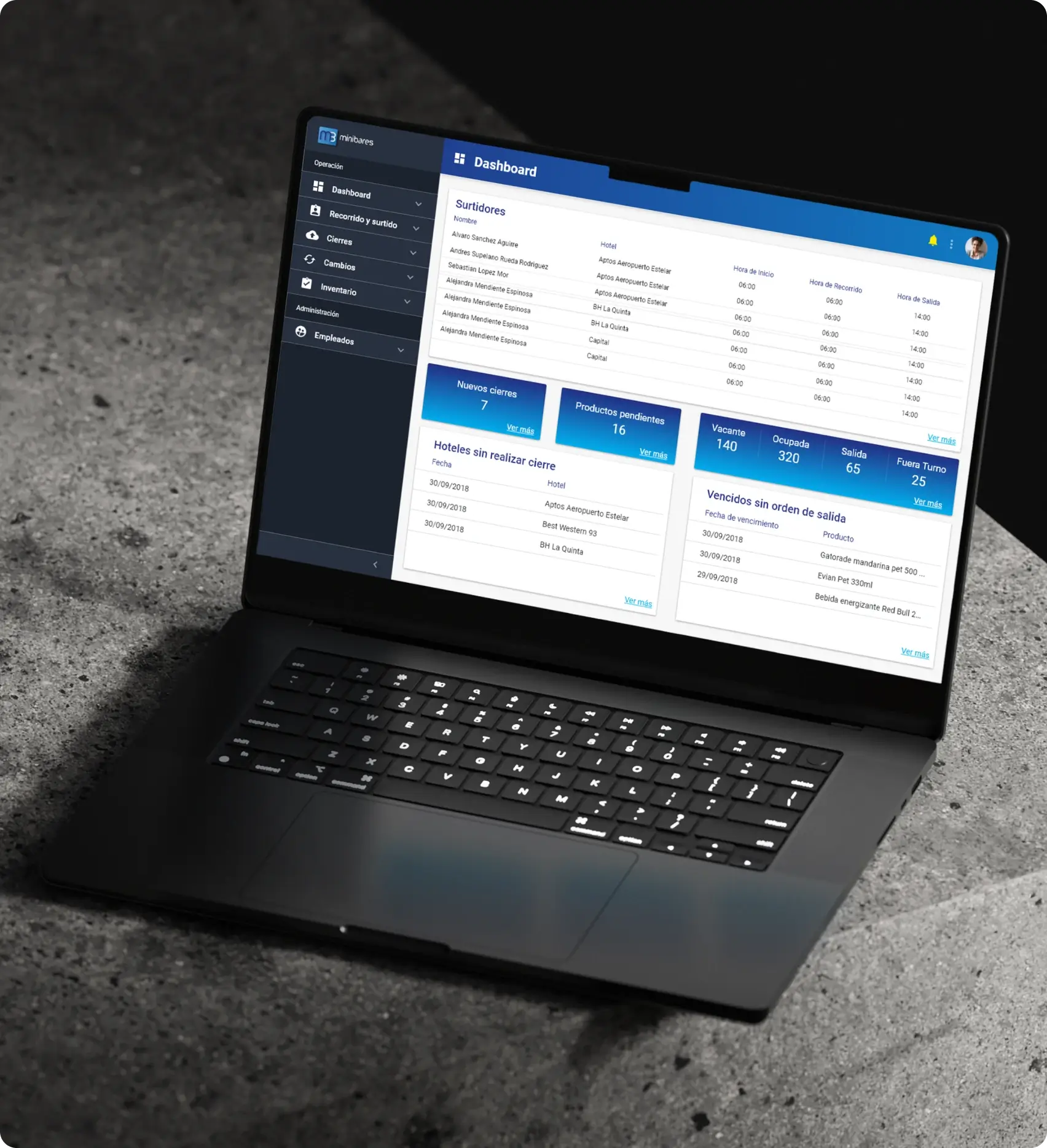Case Study
Total digital transformation for an operation more efficient and reliable.
Challenge and Solution
Challenge and solution
Minibares S.A.S. is the company responsible for supplying, controlling and reporting the consumption of products in hotel minibars. Previously the operation it relied on manual processes: paper formats, consolidation in Excel and fragmented communication between suppliers and administration.
This not only generated frequent inventory errors, delays at the end of the month and poor visibility of the actual state of the operation; it also limited growth and decision-making based on reliable data.
In Tres Pi we redesigned the entire operating system, from the pump route to accounting management. We created a digital ecosystem that includes a web application for the administrative team and a mobile app for dispensers. Now, every action is recorded in real time, with traceability by hotel, room, product and person.

.webp)
.webp)
Methodology and Tools
METHODOLOGY AND TOOLS
Methodology and Tools
Web application for the administrative team:
A tool designed to have the total control of the operation: inventory by room, order management, supplier control, daily cash closing and detailed reports. All in one place, with real-time information.
Mobile application for dispensers:
Developed to facilitate every visit to hotels. The dispenser records products consumed, the status of the refrigerators and orders, directly from your cell phone and inside the room. No transcription errors or waiting.
Microservice-based architecture:
The solution was built with a robust, scalable and flexible infrastructure. We use Node.js, Python, Docker, Angular and native Android, all connected to a cloud that keeps data synchronized and instantly available.
Collaborative design process:
Before writing the first line of code, we did a leaving the field. We accompanied the Minibares team in hotels in Colombia, Peru and Chile to understand how they worked. From that observation, we designed real flows, functional prototypes and a deployment adapted to the pace of the operation.
Web application for the administrative team:
A tool designed to have the total control of the operation: inventory by room, order management, supplier control, daily cash closing and detailed reports. All in one place, with real-time information.
Mobile application for dispensers:
Developed to facilitate every visit to hotels. The dispenser records products consumed, the status of the refrigerators and orders, directly from your cell phone and inside the room. No transcription errors or waiting.
Microservice-based architecture:
The solution was built with a robust, scalable and flexible infrastructure. We use Node.js, Python, Docker, Angular and native Android, all connected to a cloud that keeps data synchronized and instantly available.
Collaborative design process:
Before writing the first line of code, we did a leaving the field. We accompanied the Minibares team in hotels in Colombia, Peru and Chile to understand how they worked. From that observation, we designed real flows, functional prototypes and a deployment adapted to the pace of the operation.
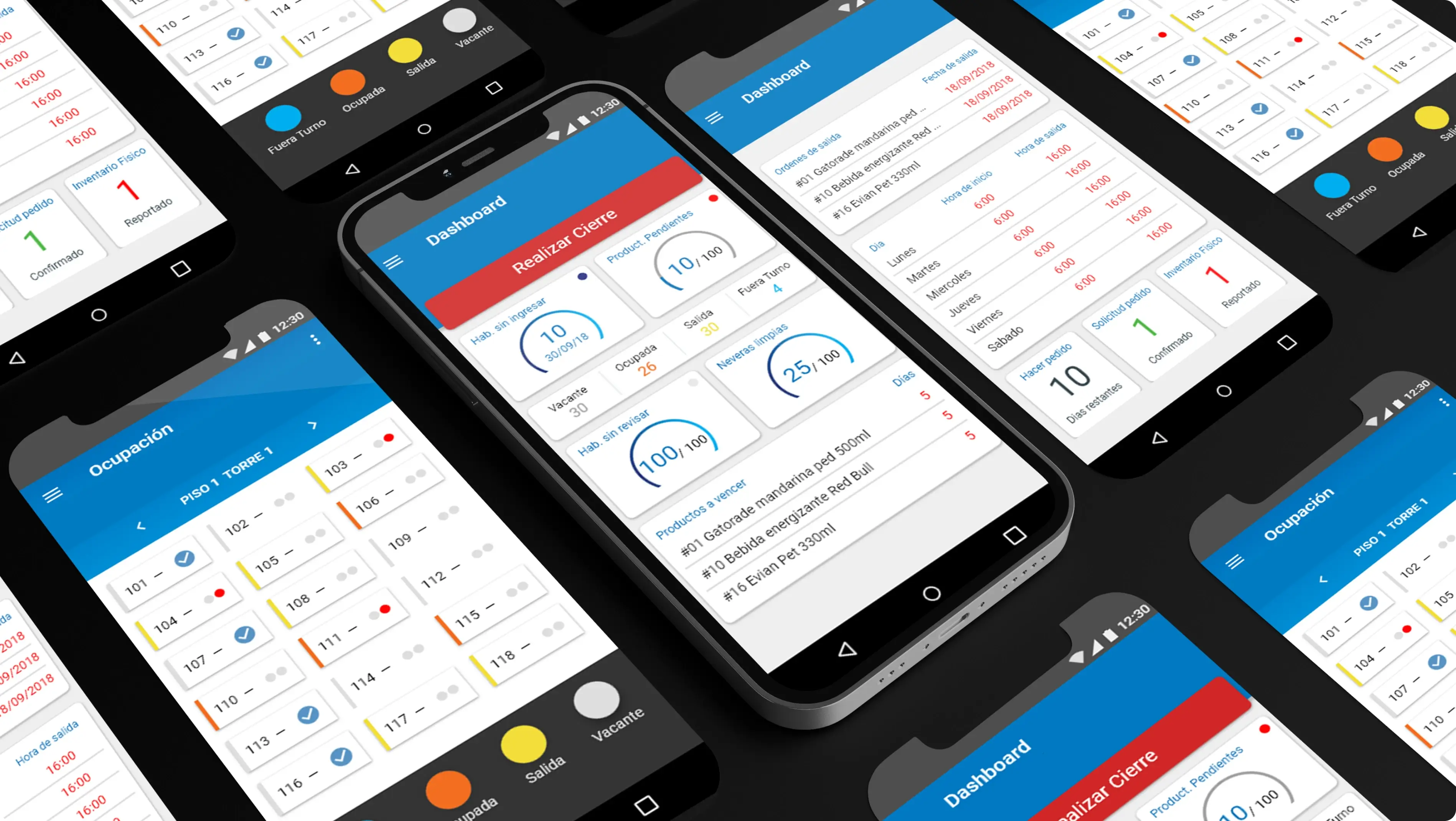


.webp)
TEAM
Design, development and management to create a tailor-made digital solution, always focused on understanding the daily lives of users and ensuring the best product.

Project Manager
UX/UI Designer
Backend Developers (2)
Frontend Developer
TEAM

Results
Results
Minibares went from an operation based on paper and memory to a digital system that accompanies every decision, every assortment and every order. Today, dispensers save time, reduce errors and work with tools designed for them.
In administration, the team accesses consolidated and reliable information to make decisions based on data. In addition, the system operates in a manner consisting of several countries, allowing for a standardized operation to be maintained regardless of the context.
Better operation, better decisions.
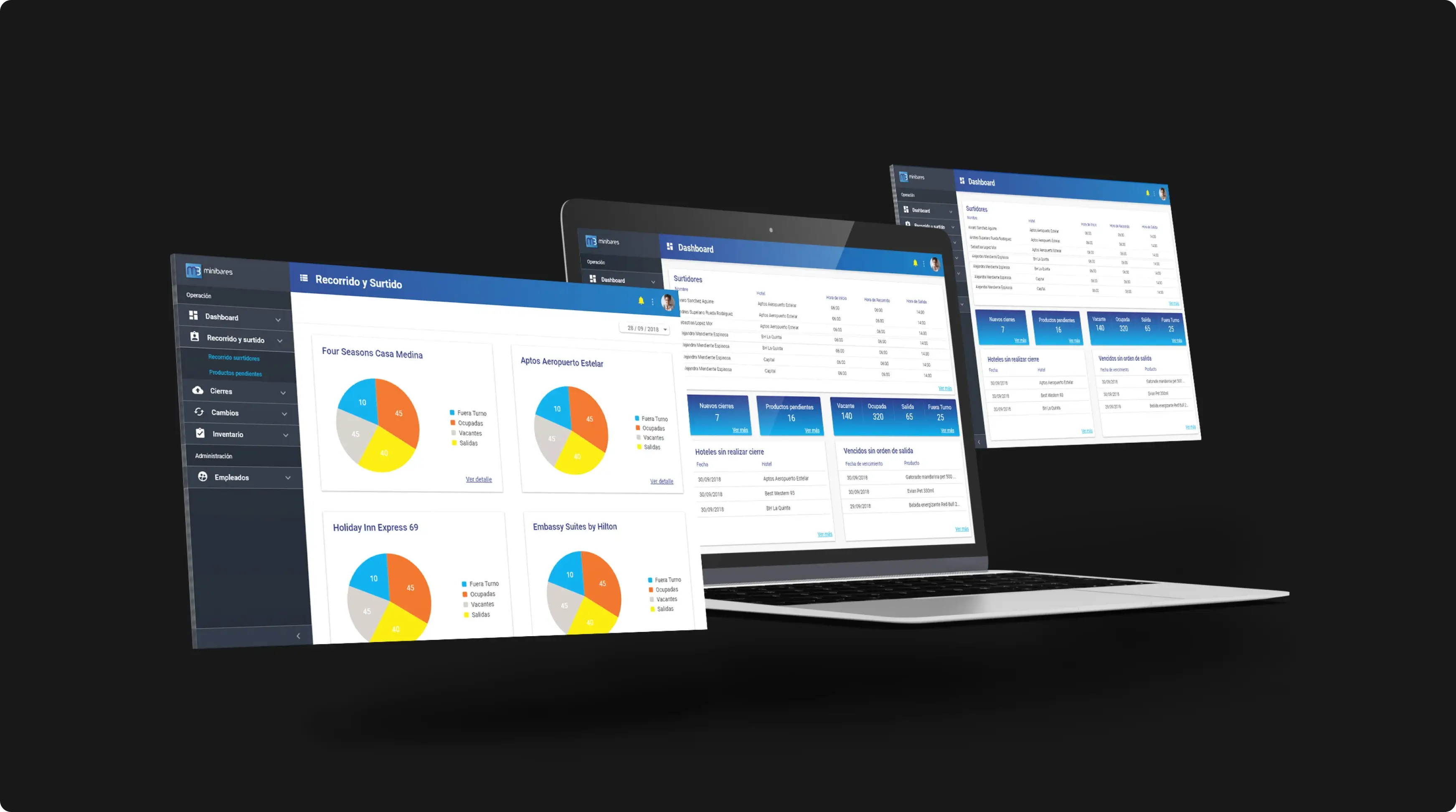
At Tres Pi, we don't just design technology. We listen, observe and create tools that adapt to the real pace of the companies that use them. Because when the system understands the operation, everything flows.
